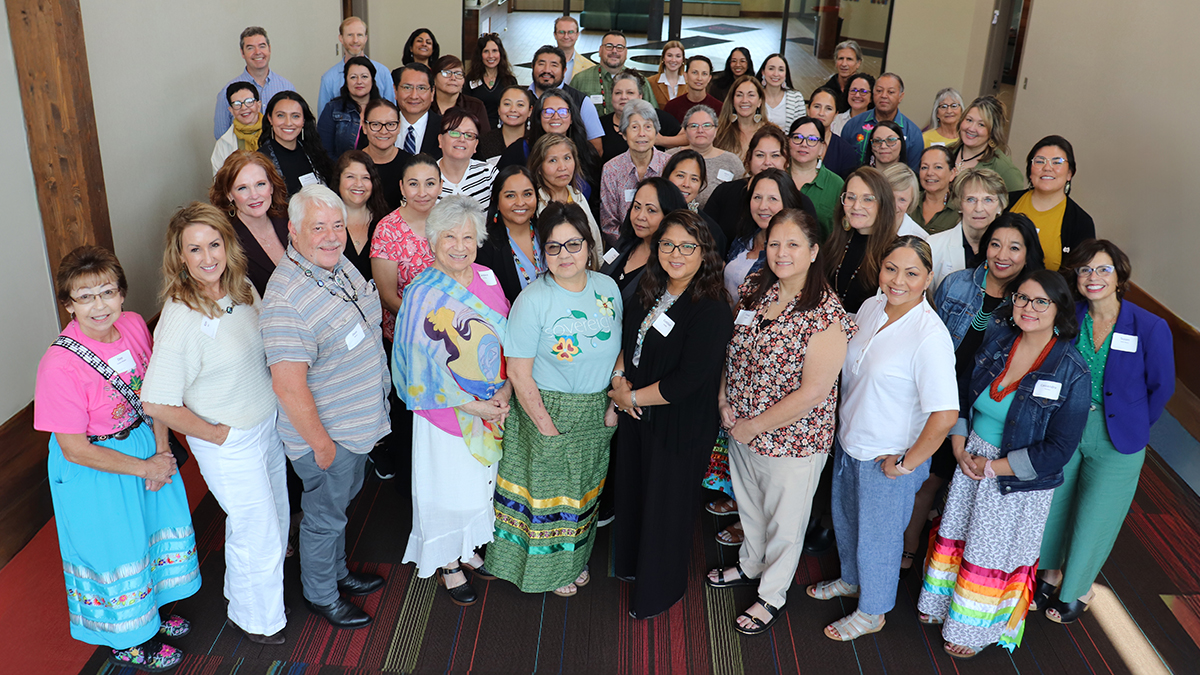
For Linda Smith, the landmark gathering in June, hosted by the Winnebago Nation in northeast Nebraska, was a full-circle moment.
Smith, the director of policy at the Buffett Early Childhood Institute at the University of Nebraska, started her illustrious career in early childhood on the Northern Cheyenne Tribe reservation in her home state of Montana.
“I learned most of what I value about early childhood from that experience,” she said.
Now, years later, she and some of the nation’s top Tribal early childhood experts are developing a vision and blueprint for the future of Native American children and families.
From June 9-11, the Buffett Institute and the Winnebago Tribe of Nebraska hosted leaders from more than 40 sovereign Tribal Nations and communities.
The need is great: more than one in four Native children live in poverty, and they are significantly underserved by nearly all systems obligated to serve them. So too are the strengths: Native children live in communities and within families that hold them sacred and surround them with cultural beliefs and practices that nurture their development.
At the “Native Nations: Honoring Culture and Shaping Futures for Children and Families” event, the nearly 60 participants represented Tribal leadership, child care, Head Start, home visiting programs, health care, Tribal colleges, parents, elders, and more.
Maria Garcia from the Omaha Tribe of Nebraska and Amy LaPointe-Houghton from the Winnebago Tribe represented Nebraska, and the group toured the Educare Winnebago early childhood facility. A dinner showcasing Indigenous food was prepared by Chef Anthony Warrior.
Attendees worked together to identify eight priority areas for action:
- Investing in a thriving Tribal early childhood workforce
- Preserving and revitalizing Tribal heritage through language and culture
- Ensuring access to health services, including services addressing the mental, physical, emotional and spiritual wellness of families, that respect traditional knowledge and practices
- Protecting Tribal sovereignty and right to self-govern
- Creating trusted partnerships among Tribes and across other sectors
- Providing infrastructure based on the assets, needs and priorities of Native families and children
- Centering Native voices and perspectives to drive meaningful research and data collection
- Ensuring all Tribes have access to abundant resources and partnerships
Importantly, the event addressed Native families living both on and off Native lands. A 2023 Bipartisan Policy Center report, “Invisible Children, Invisible Families," noted that more than 80% of Native families do not live on Tribal land.
“It was so gratifying to see so many committed to improving early childhood for Native Americans come together to create a vision for the future that is grounded in the beautiful values, customs, and beliefs of our Native community,” Smith said.
Melanie Sands-Snyder is a citizen of the Chippewa Cree/Rocky Boy Tribe and a member of the Early Childhood Tribal Coalition in Montana.
“I was invited into this space because of two parts of my life’s work,” she wrote on LinkedIn after the event. “The work I do in healthcare, where I lead efforts to grow, support, and retain the people who care for our communities—building workplaces that value connection, culture, and well-being. And my work within Indigenous communities, where I stay rooted in advocacy, cultural preservation, and the power of Native-led solutions.”
“To sit in this circle—to listen, learn, and contribute—is an honor I carry with humility and fire. We are not just imagining change—we are shaping it. Together,” she continued.
Moving forward, the Buffett Institute will work with an advisory committee representing the larger group to further define the blueprint and lay out action steps to improve Native families’ and children’s access to early care and learning opportunities.
The Heising-Simons Foundation funded this opportunity. The conference’s planning committee included Leigh Ann Courville, Barb Fabre, Amy LaPointe-Houghton, Callie Parr, Lee Turney, Dion Wood, Dawn Yazzie, and the Buffett Institute's Smith, Hanna Junus, and Michelle Sarche.


.jpg?h=4000&iar=0&w=6000)
.jpg?h=4000&iar=0&w=6000)
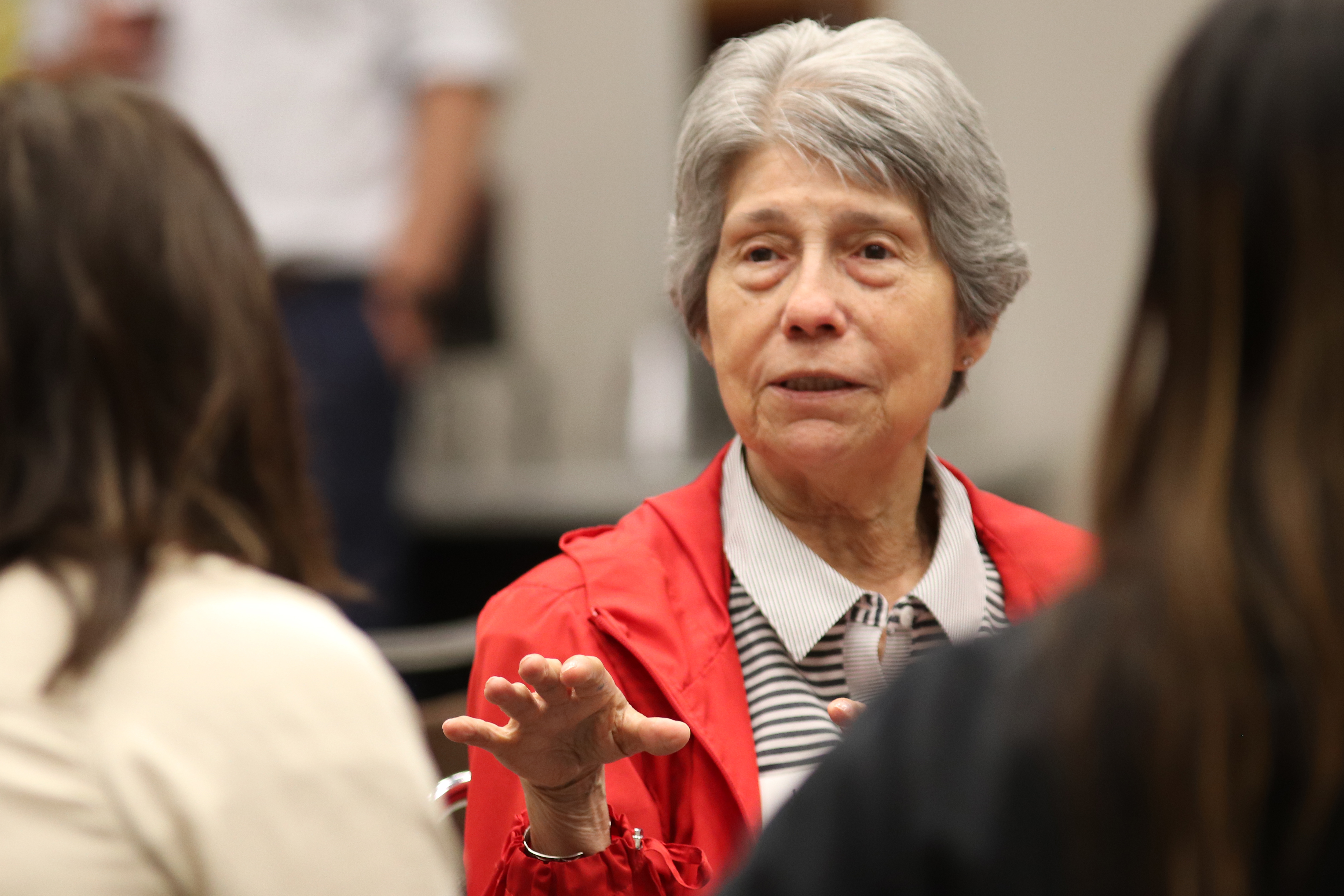
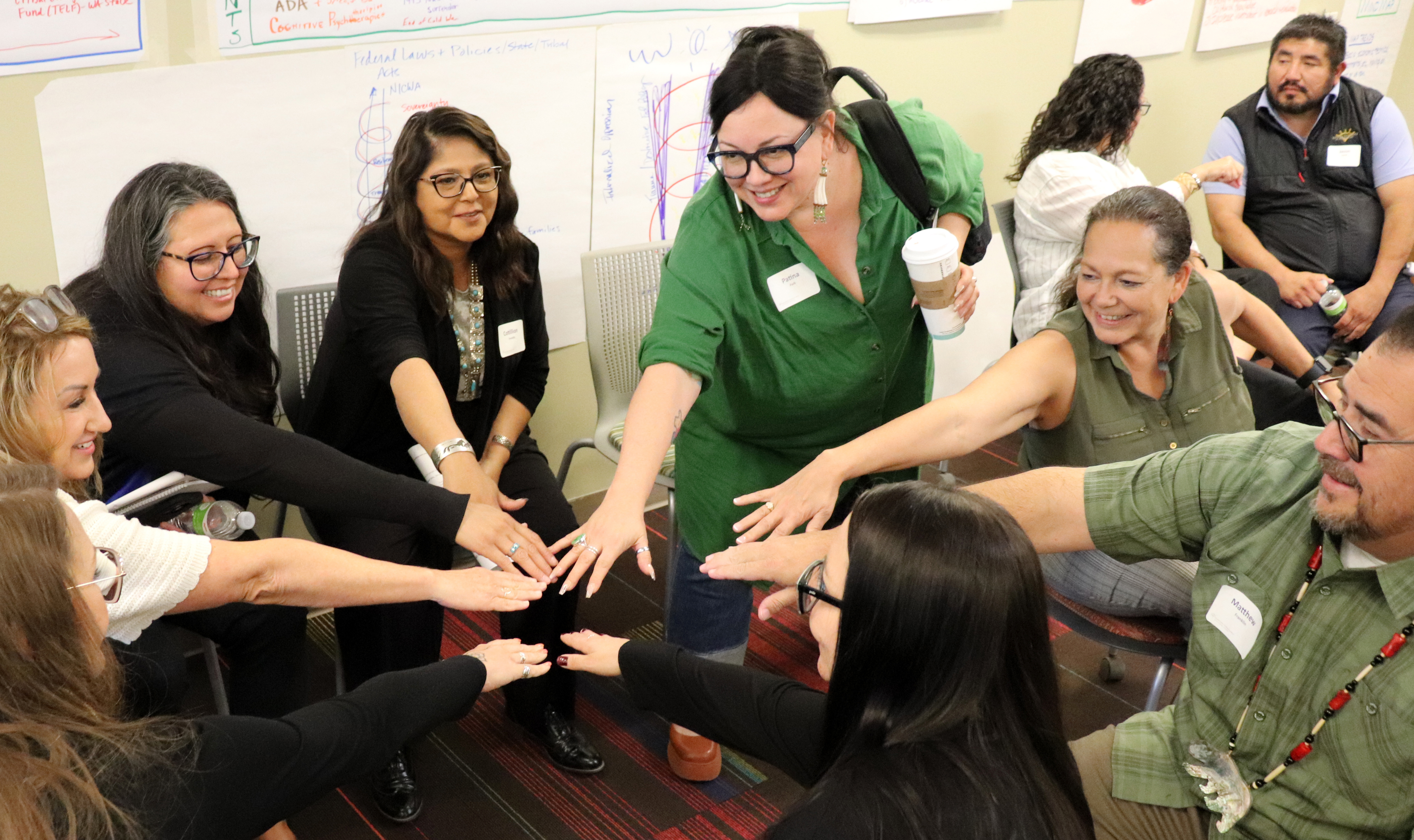

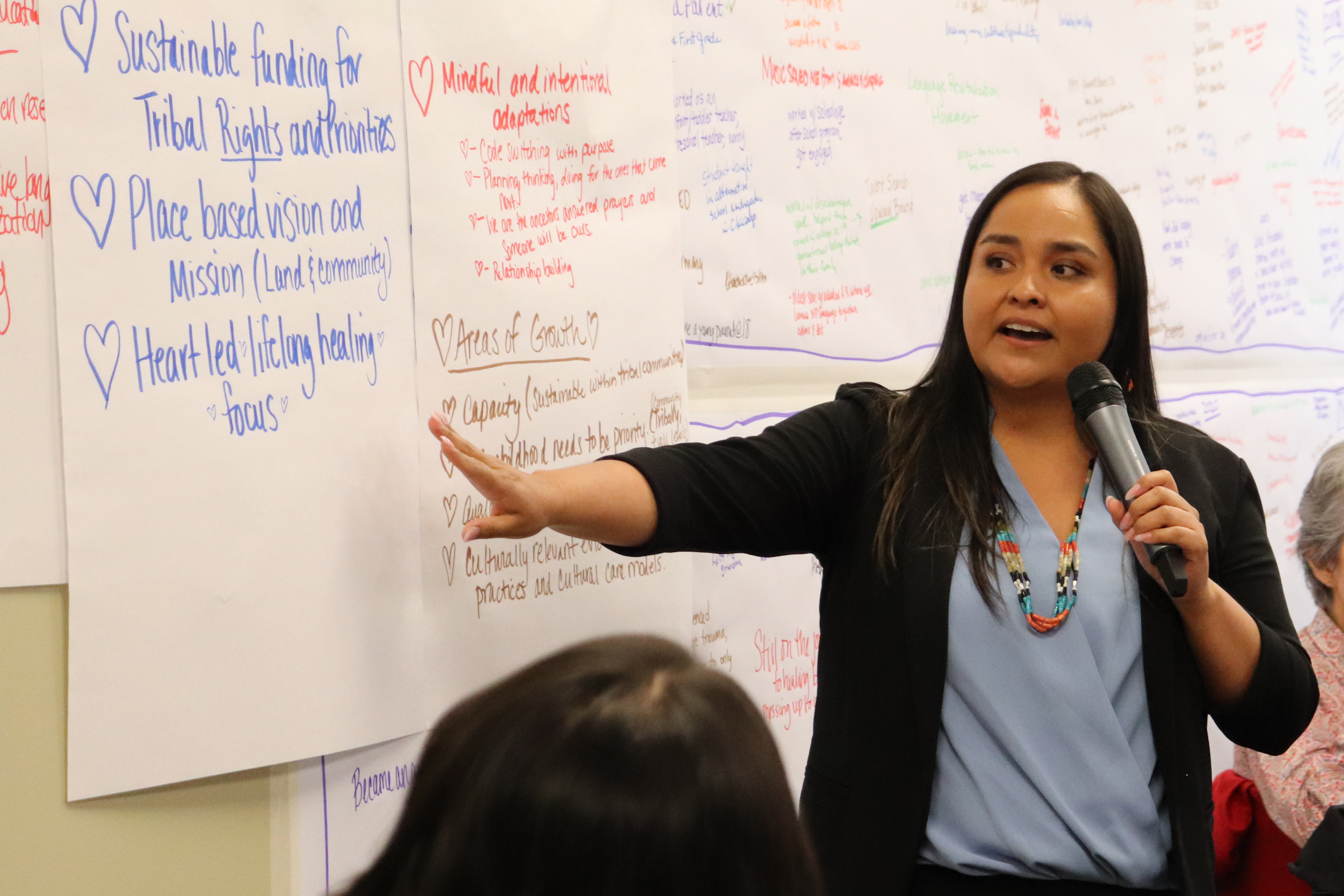
.jpg?h=3868&iar=0&w=5802)
.jpg?h=3845&iar=0&w=5767)
.jpg?h=4000&iar=0&w=6000)
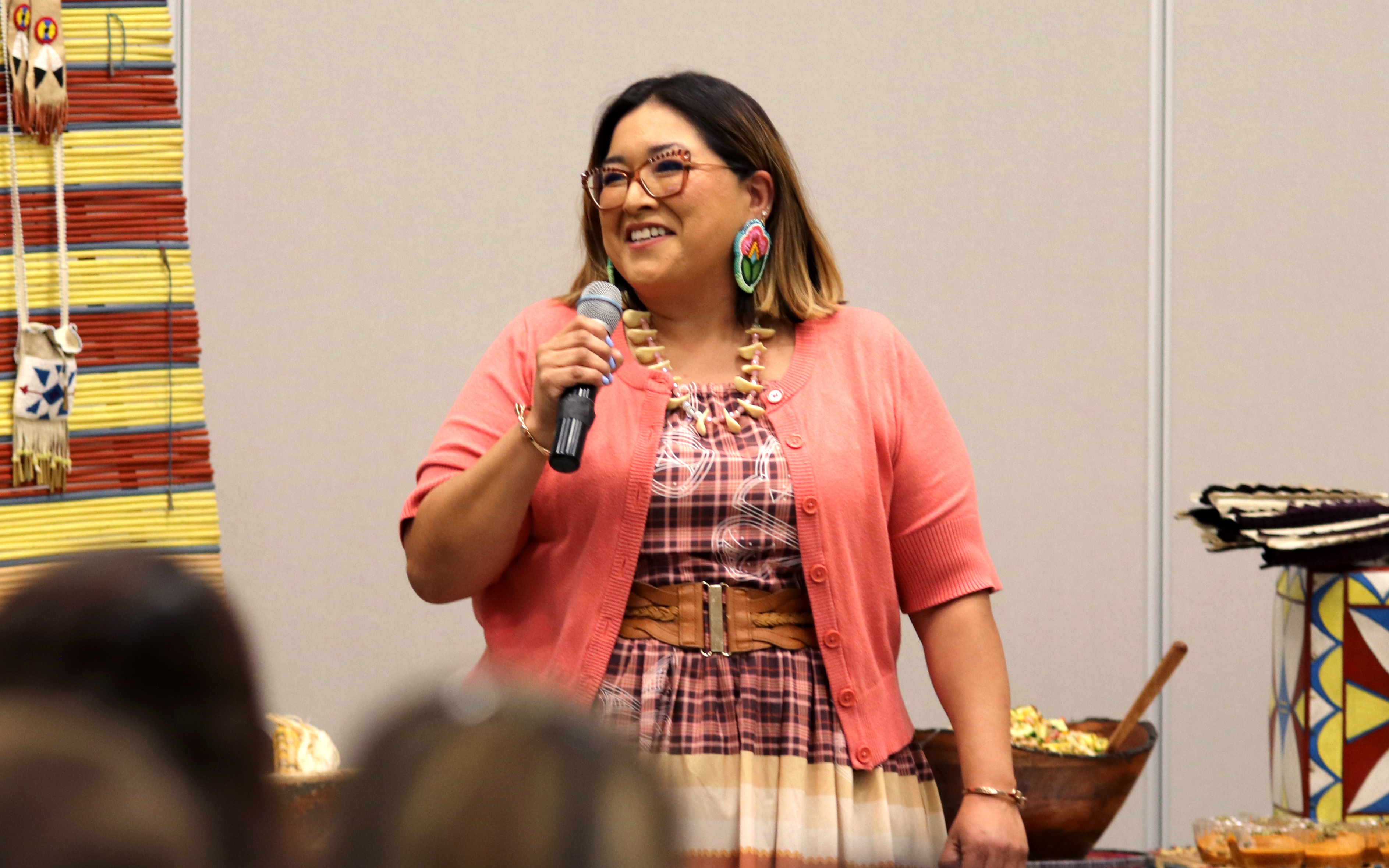
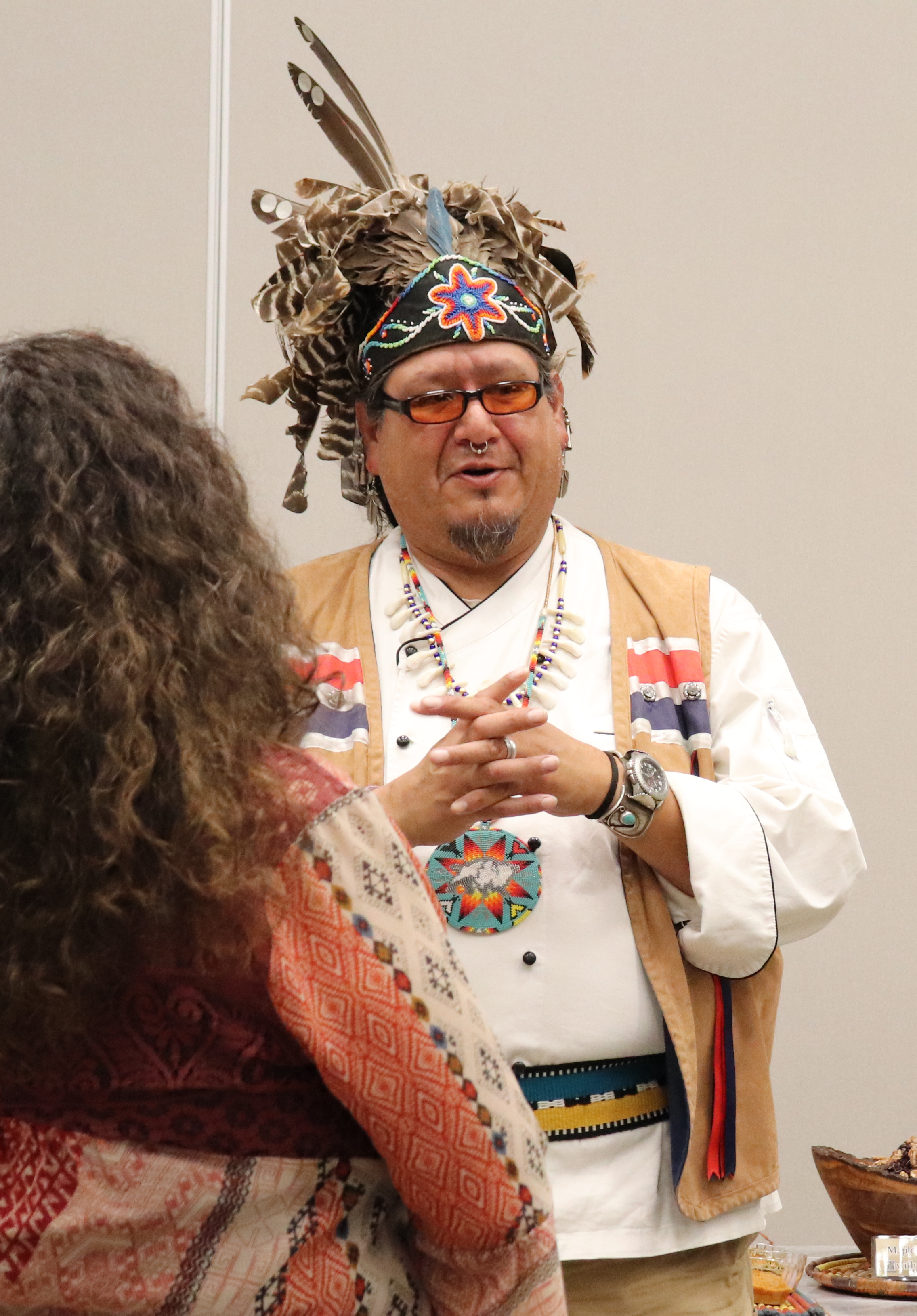
.jpg?h=1467&iar=0&w=1774)